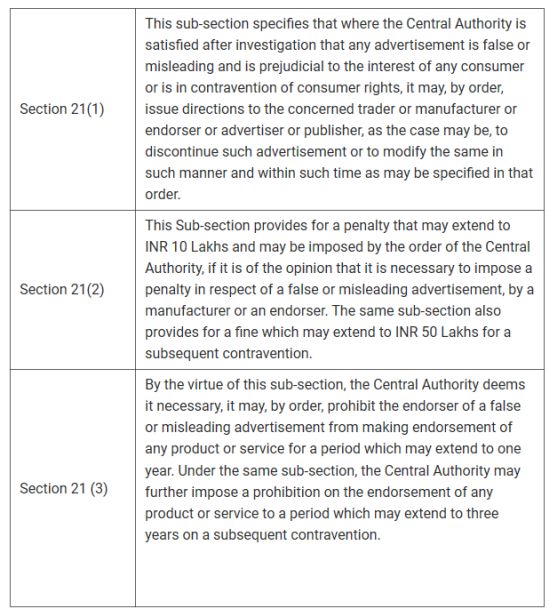The outbreak of novel Coronavirus (COVID-19) pandemic has not only enormously disrupted human lives worldwide but has also adversely impacted several industries. As the viral attack erodes social and economic fabric of the society and creates exponential fear amongst the general public, it has been noted that several industries are promoting false and misleading advertisements to apparently capitalize on this situation of crisis by exploiting the fear of the virus in general public. For instance, recently Amazon delisted a number of products that claimed to cure novel Coronavirus for 'unapproved medical marketing claims'.1 Following Amazon's footsteps Facebook also banned all misleading advertisements for products claiming to cure Coronavirus.2 In an interesting case in India, popular soap manufacturer Reckitt Benckiser (India) Pvt Ltd which owns the brand Dettol, amidst the Coronavirus outbreak broadcasted an advertisement which indicated that washing hands with soap cakes was an inefficient means to fight disease causing germs while their handwash offered better protection. Later, Hindustan Unilever Limited (HUL), manufacturing soap and related products under the brand name –' Lifebuoy' contested against Reckitt Benckiser before the High Court of Bombay and contended that the impugned advertisement advocated false claims. Subsequently, Reckitt Benckiser removed the advertisement from public domain3.
Certain reports also suggested that Secretary of the Advertising Standards Council of India (ASCI) has stated that they are looking into such matters and will take appropriate actions in this regard.4 In this article, we look into the legal standpoint on false and misleading advertisements in India. The following laws deal with this issue:

Consumer Protection Act, 2019
Section 21 of the Consumer Protection Act, 2019 (hereinafter referred to as the 'CP Act) deals with the Power of Central Authority to issue directions and penalties against false or misleading advertisements. The relevant provisions of the said section are given the table below:
The Cable Television Network Rules, 1994
The Advertising Code, drawn up under Rule 7 of the Cable Television Network Rules, provides that all advertisements must adhere to the laws of the land. The products and services advertised should not suffer from any defect or deficiency as mentioned in the Consumer Protection Act, 1986 and further, they must not contain any references which are likely to lead public to infer that the product advertised or any of its ingredients occupy some special or supernatural or miraculous property or quality which is difficult to prove.
The Cable Television Network Regulation Act, 1995
Section 6 of the Cable Television Network Regulation Act, Chapter II of the Cable Television Networks (Regulation) Act, 1995 says that no person is allowed to transmit or re-transmit through a cable service, any advertisement, unless such advertisement is in conformity with the prescribed advertising code.
Conclusion
Endeavours to reap benefits and capitalize from tragic situations has been a very common marketing practice. However, while making promotional claims, advertising companies should be careful of not transgressing the limits and make claims without any sufficient evidence in support of their claims. False advertising claims about medicines curing any disease including coronavirus shall not be promoted without any scientific evidence or proper R&D procedure as the same is legally as well as ethically wrong and also pose health risks to consumers.
Footnotes
Originally published 06 April 2020
For further information please contact at S.S Rana & Co. email: info@ssrana.in or call at (+91- 11 4012 3000). Our website can be accessed at www.ssrana.in
The content of this article is intended to provide a general guide to the subject matter. Specialist advice should be sought about your specific circumstances.
